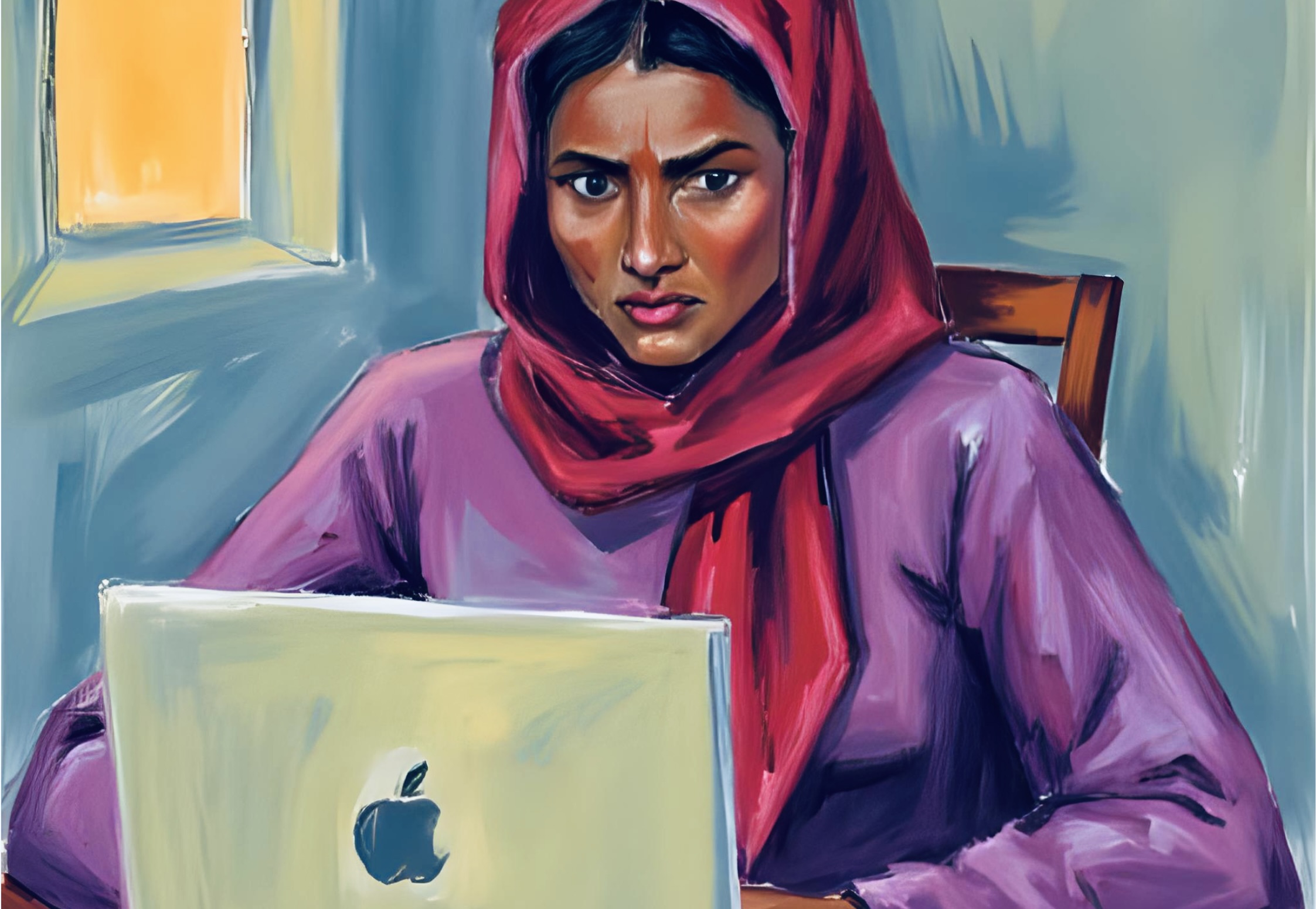Digital wars – hate speech against women in Sudan
24 July 2025
Sara* is still scarred by her memories of fleeing Omdurman, back in 2023 after Sudan’s war between the army and the paramilitary Rapid Support Forces sparked off in mid April the same year. Her home was looted and partially damaged from shelling. Like many civilians trapped in the war, Sara and her family took a perilous journey to leave the country, sharing a vehicle with neighbours. The journey was riddled with checkpoints, manned by armed youth from both warring parties, pending the location. “I can still remember the sense of fear and internal panic every time we drove up to those checkpoints,” she told Ayin. “I felt like my heart was beating louder than the gunfire.”
Now Sara is safe, far from the bombs, and continues to follow events back home online. A proponent of peace and civil rights, Sara often posts content on social media, denouncing a conflict that displaced her and her family, along with a staggering 12 million others.
But for the past few months, Sara has endured another form of fear. Online hate speech. “These days, every time I open my laptop, my stomach sinks. I just fear more attacks and hatred on social media.”
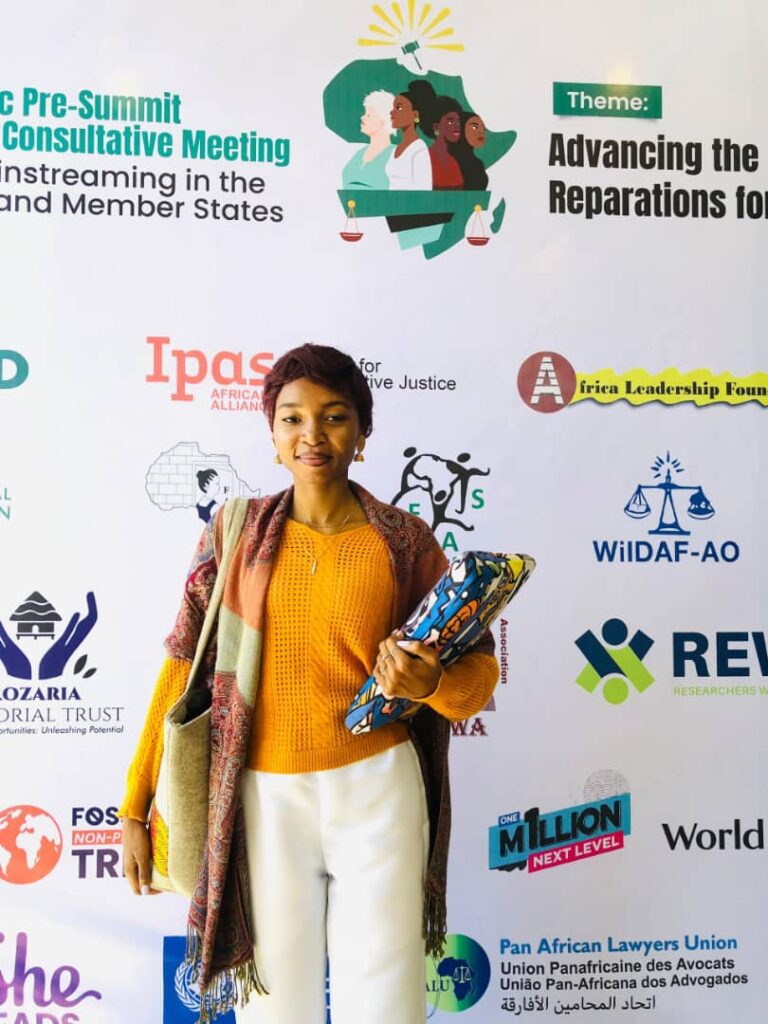
A digital battlefield
The internet is another battlefield in the war whereby the target is often Sudanese women. Hate speech has caused psychological harm to Sudanese women from all walks of life. This weaponised rhetoric has become a dangerous tool for discrediting women and erasing their voices in public and digital spheres.
Online attacks are orchestrated by anonymous groups operating in closed virtual spaces, disseminating disinformation and inciting hostility—especially against women activists, journalists, and those working in civil society. These women are often targeted through smear campaigns and denied full citizenship rights simply for opposing the war or promoting peace.
Human rights defender Suzan Hussein said that this is a critical issue because the war began online, with digital rhetoric stoking division before physical violence spread on the ground. The online environment in Sudan has become a hostile space for women, facilitating bullying, harassment, and threats to their safety and dignity.
Sojoud El Garrai, Coordinator of the Human Rights Defenders in Exile, East Africa (Ayin)
The cultural basis of hate speech
Hussein explains that hate speech has deep cultural roots in Sudan, particularly in how society views women’s roles. According to her, any woman who challenges traditional gender roles or steps outside socially accepted norms becomes a target. “Take the position of Walaa al-Boushi, the former minister of youth and sports during the Hamdok government,” Hussein told Ayin. “She was subjected to [online] bullying campaigns because she nominated her for the ministry of sports, which they believe is a position that deserves a man. They believe that women do not understand sports affairs, [ignoring] her qualifications and abilities.” It is accepted that men belong in public spaces—working, engaging in politics, and leading— yet women should remain in domestic spaces, caring for families, Hussein added.
When women attempt to enter politics or assert themselves in traditionally male-dominated arenas, they face heightened levels of hate speech and psychological pressure. “Amna Ahmed Al-Makki was the first female governor in the history of Sudan for River Nile State during the Hamdok government,” Hussein added. “When she was appointed as governor, people went out to demonstrate against the appointment of a woman, and there were leaflets containing hate speech against the appointment.” Hussein added that religious discourse—whether Muslim, Christian, or secular—also contributes to stigmatisation, with each group projecting its own judgment based on context.
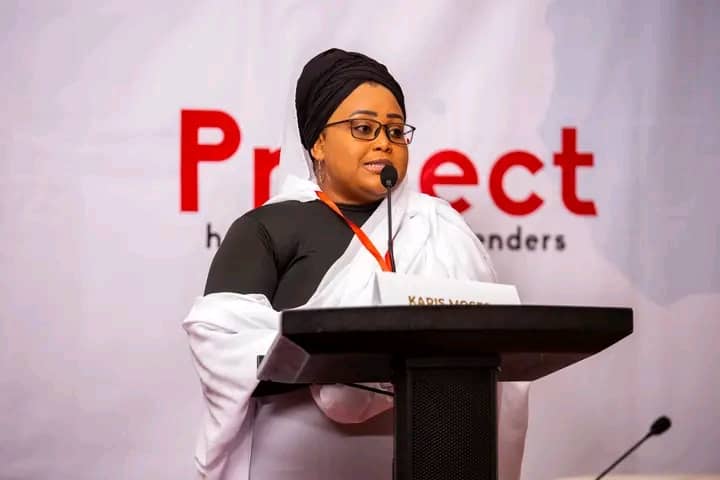
Targeted harassment and gender stereotyping
Sojoud El Garrai, Coordinator of the Human Rights Defenders in Exile, East Africa, agrees with Hussein. She noted that Sudanese women who attempt to participate in public, political, or cultural life are quickly targeted. This harassment often centers on their appearance, age, or personal lives, in an effort to isolate them morally and discourage younger women from supporting or following them.
Sexual innuendos and the distortion of any content posted by women are commonly used tactics to undermine female voices and prevent their participation in public discourse. “If we talk about Hannan, for instance, from Somoud, they are always hit on sexual tones, they try to alienate the discussion by questioning her morals,” El Garrai said. This is particularly acute whenever women speak out against the war, El Garrai added, in a bid to curb any potential threat to male dominance in public life.
These issues have become more severe during the war because those who started the war were men, and women are currently seeking to mend this great rift and have become advocates for peace and are present in initiatives that seek to make peace and end the war
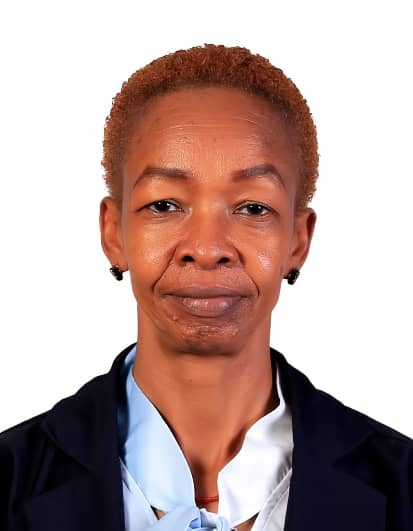
Defamation and psychological harm
Al-Quray highlighted that the hate speech targeting women has significantly complicated the socio-political landscape in Sudan. Many women involved in politics, journalism, or feminist activism have faced defamation campaigns on social media, attacking both their personal and professional reputations.
These relentless attacks have led several women to withdraw from public engagement altogether due to overwhelming psychological stress. This toxic environment forced many to prioritise safety over advocacy, silencing crucial voices in the process.
“Some women are discriminated against or excluded simply for their political affiliation or media involvement,” says journalist and human rights advocate Mai Abdelqader. “In some cases, they were even denied renewal of their passports—despite it being a fundamental legal right.”
Activist Mohassen Atem echoed these concerns, pointing out that the intensifying polarisation and political propaganda—particularly between supporters and opponents of the war—have fueled an even more hostile climate. This rhetoric marginalises women, weakens their sense of security, and negatively impacts their mental and emotional well-being.
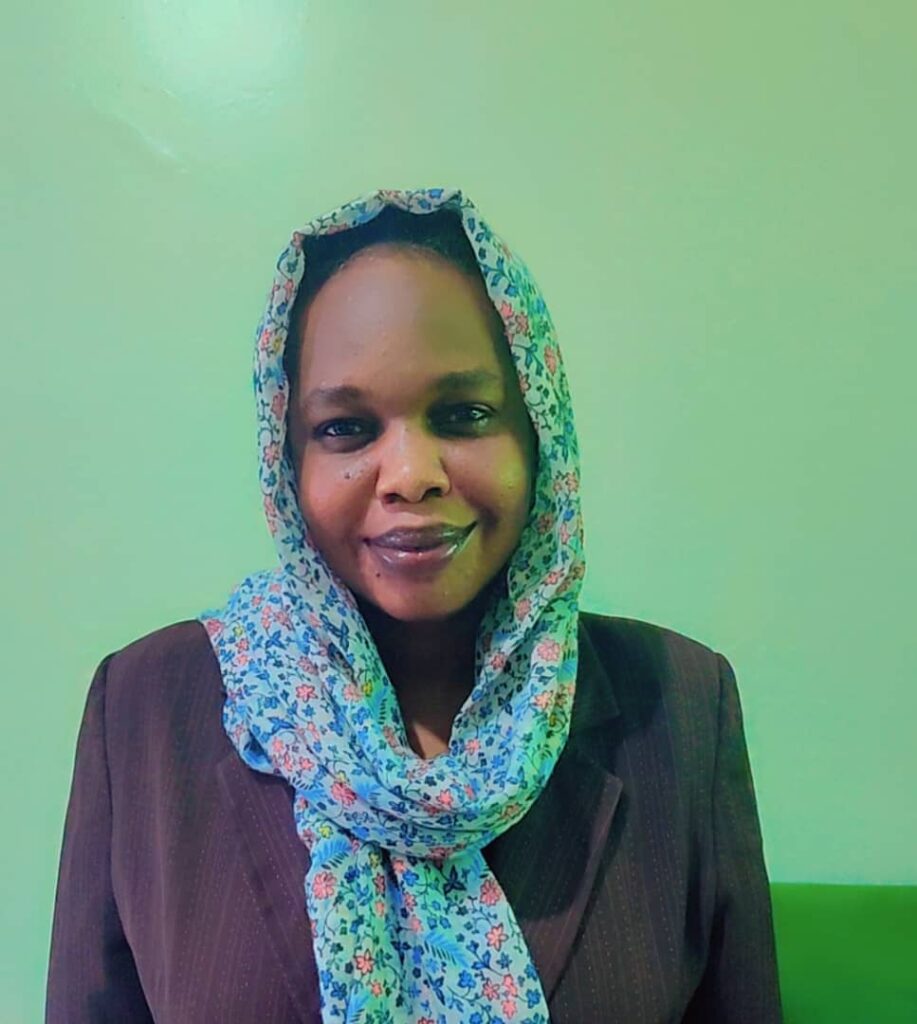
A call for solidarity
In response, Atem calls for community-wide efforts to raise awareness about the dangers of hate speech, provide legal aid to affected women, and strengthen the role of media in promoting a culture of tolerance, equality, and mutual respect.
She concluded that the war has taken a physical and emotional toll on women; they have been subjected to sexual and gender-based violence, including rape, physical abuse, and psychological trauma, leaving them vulnerable to depression, anxiety, and fear.
Additionally, the war has significantly altered women’s roles in society. With many men—fathers, husbands, and brothers—either killed or displaced, numerous women have become the sole providers for their families. This new responsibility places an immense burden on them and further complicates their lives.
Women in post-war Sudan are in urgent need of mental health services, medical care, and social support to recover from the traumas they have endured, she says.
Sara could not agree more.
She hopes to find counselling but admits she can hardly affort it. “I don’t think a day goes by without finding some kind of derogatory [online] comments directed against me,” she said. “I’ve often thought I need to see someone to help me recover mentally, but finding counselors and paying for their services is not easy. I also need to eat.”
There are days the online attacks are too much for her, Sara says, but there are also days she manages to speak out. “They seem to hate the fact that I managed to survive and still have a voice and will continue to use it.”
* The name has been changed for her physical and online security.


